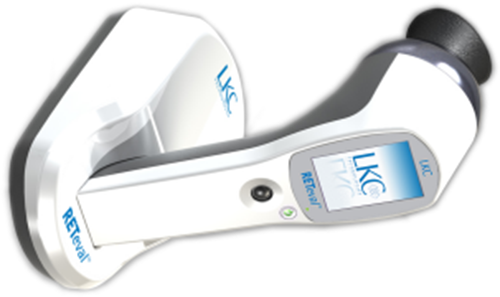LKC Technologies‘ RETeval device and full function flash ERG/VEP system were granted a patent (USPTO # 9,492,098 B2) on Nov. 15, 2016 for its stimulus generation, and another patent (USPTO # 9,510,762 B2) on Dec. 6, 2016 for its LKC Sensor Strip skin electrode arrays.
The products enable physicians and researchers to better utilize visual electrophysiology to evaluate retina function through the assessment, diagnosis, and monitoring of a variety of vision-threatening diseases such as glaucoma and diabetic retinopathy.
“Today’s eye care professionals want repeatable, accurate test results and easy to use systems that help them understand what is going on with their patients,” says LKC Technologies President and patent author, Jim Datovech.
“The RETeval device utilizes traditional corneal based electrodes, but certain clinical settings benefit from the less invasive skin electrodes. LKC’s Sensor Strip skin electrodes, are easy to use, cost effective, and more efficient than other skin electrode options. Where warranted, patients appreciate the non-invasive nature of these electrodes and fast ERG testing with the RETeval device, and doctors appreciate the reliability and repeatability of ERG results using the device, regardless of their choice of electrode.”

(Credit: LKC Technologies)
LKC Technologies’ handheld RETeval visual electrodiagnostic system is a complete solution for ophthalmologic flash Electroretinogram (ERG) and flash Visual Evoked Potential (VEP) testing.
LKC Sensor Strips have the following benefits:
- All three necessary electrodes in one array for easy placement of all electrodes
- Three simultaneous connections with one connector, making it impossible to misconnect electrodes to device
- Patented torsion-relief feature of LKC’s Sensor Strips and automatic electrode clip disconnection feature reduces the chance of the connector or cable inadvertently pulling the electrode off of the skin from patient movement or environmental factors




